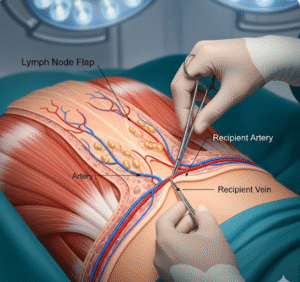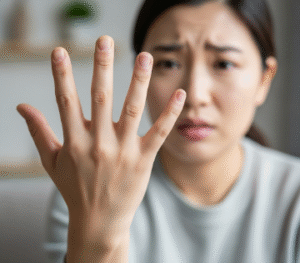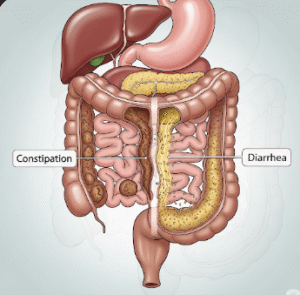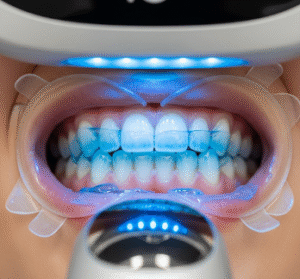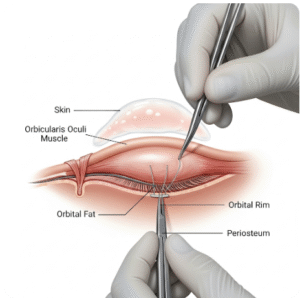Overview
Irritable hip, also known as transient synovitis of the hip, is a temporary condition that primarily affects children, causing hip pain and limping. It is one of the most common causes of hip pain in children between the ages of 3 and 10. Although the condition is generally self-limiting, it can be distressing for both children and parents.
In Korea, pediatric orthopedic and pediatric rheumatology clinics provide thorough evaluation and management for irritable hip. With timely diagnosis and appropriate care, children typically recover fully within one to two weeks without long-term complications.
Key Facts
- ➔ Irritable hip predominantly affects children aged 3–10 years.
- ➔ Boys are affected more often than girls.
- ➔ Symptoms often appear after a viral infection or mild trauma.
- ➔ The condition is temporary and usually resolves within 7–14 days.
- ➔ Accurate diagnosis is essential to rule out more serious conditions such as septic arthritis or juvenile idiopathic arthritis.
What is Irritable Hip?
Irritable hip is a temporary inflammation of the synovial lining of the hip joint, causing pain and restricted movement. Despite causing discomfort and limping, it is a benign condition that does not cause permanent damage to the hip joint.
- ➔ Transient synovitis: Inflammation of the hip joint lining without bacterial infection.
- ➔ Self-limiting: Typically resolves within one to two weeks.
- ➔ Associated triggers: Often follows a viral infection, upper respiratory tract infection, or minor injury.
- ➔ Differential diagnosis: Important to differentiate from septic arthritis, Legg-Calvé-Perthes disease, or fractures.
Understanding the temporary nature of irritable hip helps reassure parents and guides appropriate treatment.
What Symptoms Are Related To
The main symptoms of irritable hip include:
- ➔ Hip, groin, or thigh pain
- ➔ Limping or difficulty walking
- ➔ Pain worse after activity and improves with rest
- ➔ Mild fever may be present in some cases
- ➔ Limited hip movement, especially internal rotation
- ➔ Occasional knee pain, as pain can radiate from the hip
Recognizing these symptoms helps distinguish irritable hip from more serious hip conditions that require urgent medical attention.
What Causes / Possible Causes
The exact cause of irritable hip is not always clear, but several factors are implicated:
- ➔ Viral infections: Often follows upper respiratory tract infections or other viral illnesses.
- ➔ Minor trauma or overuse: Physical activity or minor injuries may trigger inflammation.
- ➔ Immune response: Temporary inflammation of the synovium may be triggered by the body’s immune response to infection.
- ➔ Genetic predisposition: Some children may be more susceptible to joint inflammation.
Although the cause is usually benign, prompt evaluation is essential to rule out serious conditions such as infection or fracture.
When Should I See My Doctor
Medical evaluation is required if your child presents with:
- ➔ Sudden, severe hip pain with inability to bear weight
- ➔ High fever, swelling, redness, or warmth in the hip joint
- ➔ Persistent or worsening symptoms beyond 1–2 weeks
- ➔ Pain accompanied by systemic symptoms such as lethargy or malaise
- ➔ History of trauma or previous hip disorders
Early consultation ensures accurate diagnosis and prevents complications from more serious conditions.
Care and Treatment
Treatment for irritable hip is mainly conservative, focusing on pain relief and supporting mobility:
- ➔ Rest and limited activity: Reduce walking and running to allow the hip to recover.
- ➔ Pain relief: Acetaminophen or ibuprofen may be used to alleviate pain and inflammation.
- ➔ Monitoring: Track improvement in limping and pain levels over days.
- ➔ Supportive care: Gentle range-of-motion exercises may be introduced once pain improves.
- ➔ Follow-up: Pediatricians monitor for resolution and ensure no underlying issues are present.
Most children recover fully within 1–2 weeks without complications or long-term joint damage.
Treatment Options in Korea
Korean pediatric orthopedic and rheumatology centers provide specialized care for irritable hip:
- ➔ Clinical evaluation: Includes physical examination, hip range-of-motion assessment, and gait observation.
- ➔ Imaging: X-rays, ultrasound, or MRI to rule out fractures, septic arthritis, or Legg-Calvé-Perthes disease.
- ➔ Pain management: Prescribed analgesics and anti-inflammatory medication as needed.
- ➔ Observation and follow-up: Daily monitoring and follow-up visits to ensure complete recovery.
- ➔ Referral to pediatric rheumatology: For recurrent or prolonged cases to rule out chronic arthritis.
- ➔ Education for parents: Guidance on activity restrictions, symptom monitoring, and reassurance about the benign nature of the condition.
Leading hospitals such as Seoul National University Hospital, Asan Medical Center, and Samsung Medical Center provide multidisciplinary pediatric care, ensuring accurate diagnosis, effective management, and rapid recovery.
In Summary: Irritable hip is a common, temporary hip condition in children that typically resolves without long-term effects. Early recognition, conservative management, and specialized pediatric care in Korea can relieve symptoms, ensure complete recovery, and prevent complications.
- ➔ Key Takeaway: Most cases of irritable hip are self-limiting, but medical evaluation is crucial to rule out serious conditions.
- ➔ Action Point: Seek pediatric orthopedic consultation if your child exhibits hip pain, limping, or mobility difficulties.




